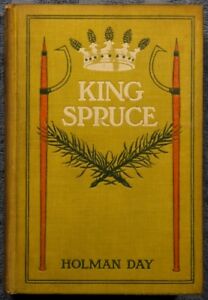This book was chosen randomly from a list of older fiction.
Beryl caves in to her mother's wishes to approach the father that disowned them many years ago and ask for his help. Beryl's mother is sick, and $100 will get her an operation that could save her. When Beryl arrives at her grandfather's home, she has to hear a lot of nasty things about her father, but she comes away with the needed money and some jewels. She makes her way back to the train station but leaves again to lay some flowers at her grandmother's grave, which causes her to miss her train.
That causes a series of events that will see Beryl accused of murder. It becomes clear to her early on that the real culprit is actually her brother, but she'll die before she sees him accused of the crime. Lennox Dunbar was a lawyer for the grandfather and saw Beryl on that fateful night. He starts the crusade to see her answer for the crime but eventually, with the help of his fiancé, Leo, comes to see that Beryl is actually innocent.
I hated almost every character in this book. Beryl had a superiority complex while appearing humble at the same time. Lennox starts this weird fascination with Beryl and pats himself on the back because "he acts honorably" with regards to Leo. I guess because he never says anything (out loud, but it's so obvious Beryl picks up on it), but the minute Leo hands him the ring, he immediately goes to the jail and worms his way in to see Beryl. At the 60% mark, I started skimming hard. I would've put it down, but I wanted to find out if they were going to find Bertie and what happened to his face. Both Beryl and Lennox would go on these long, passionate rants that were repetitive and boring. It felt like those two were "paid by the word."
The one character I did like was Leo. This young woman (with an unfortunate name) is the most wonderful character in the book. She is a friend to Beryl and believes her to be innocent. She loves Lennox with her whole heart, and when she figures out he's infatuated with Beryl, she sets him free. Lennox, jerk that he is, keeps trying to "explain himself" and make it about him. He can't just let her initiate the breakup and retain her dignity, he wants her to "understand." Go suck an egg, Lennox.
The way Beryl gets vindicated from the crime is impossible, and the role her brother plays in the book is disappointing. None of it makes any sense, but putting that aside, I just really didn't like this one. Coming in at over 600 pages, it already had the potential to be a slog, but with Beryl and Lennox being verbose, annoying characters, I just wanted it to end. On to the next one and hoping I enjoy it more!





